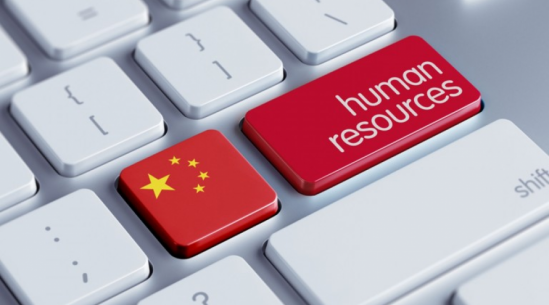Western companies keen to conduct business in China are benefiting from topical advice from experts at Crayfish.io, delivered via a series of useful webinars on a variety of topics. Human Resources (HR) has been the subject of three separate sessions recently.
These sessions covered:
- Hiring in China
- Managing your Chinese employees
- Practical aspects of employment in China
For all three topics, we called on the knowledge and experience of HR expert Jenny: our senior associate based in Shanghai.
1. Hiring in China
Jenny highlighted the importance of:
- Communication channels– in China, the internet is crucial – ‘everyone is online all the time,’ says Jenny. There are several important Chinese recruitment websites, including 51job.com, zhaopin.com, 58.com, Liepin.com and Boss.com, as well as LinkedIn and the dedicated site, LinkedIn China. Local channels are also available.
- Generational differences – there are often four or five generations working in a single organisation, each with different wants and needs, so employers must understand what their candidates are looking for.
- Speed– the concept that time is precious (time is money) is deeply ingrained in Chinese culture, so there must be a sense of urgency in dealing with candidates. Wait too long and your ideal employee may go elsewhere.
- HuKou– This is a Chinese system, requiring people to register as residents of a particular area. It may affect movement of labour from one location to another.
Jenny says that the driver for many potential employees is not always money. Employer brands, professionalism and variety of opportunity are sometimes more important when it comes to attracting talent to multinational companies. Competition is fierce because Chinese companies are now emerging as world leaders.
- Managing Chinese employees
Many of the issues raised above, together with cultural differences, also have an impact on employee satisfaction and retention. Once again, the complex generational mix underlines an employer’s need to understand exactly what potential candidates want:
- Relationships matter to Chinese professionals so building a good company culture is critical.
- Hiring managers are key and could be your secret weapon to win over talented candidates.
- Employer branding and social networks are hugely important: put the right message out through the right channel. Jenny quoted that 48% of candidates follow targeted companies on social media to stay aware of vacancies.
- Candidates want challenges and opportunities to improve their skills. They also need to have confidence in a company’s future.
- Younger generations are increasingly entrepreneurial, so they want space to learn and to show initiative. They are highly demanding because they have choices and could easily leave to go elsewhere or start up their own business.
- Practical aspects of employment in China
- Jenny outlined the specific requirements for fixed term contracts in China, which differ from those in Europe.
- She also discussed the non-competition issue, where clauses can be inserted into contracts for important individuals which prevent them from working for competitors for up to two years. Chinese law stipulates that such individuals should be compensated by employers, so such clauses are usually limited to a few choice individuals in an organisation. However, all employees are likely to be expected to sign a confidentiality agreement (more of a ‘gentleman’s agreement’) where no compensation is payable.
- She described the rules for contract termination and associated compensation. She also pointed out a recent change in the Chinese system, where social security administration and the tax bureau –previously separate entities – have now been combined. Tax deductions are available, as in the West, for children, housing and education etc., and all transactions take place online. The Government maintains closer control as a result.
Crayfish.io run regular events and webinars to provide latest Chinese business updates, knowledge and best practices.
